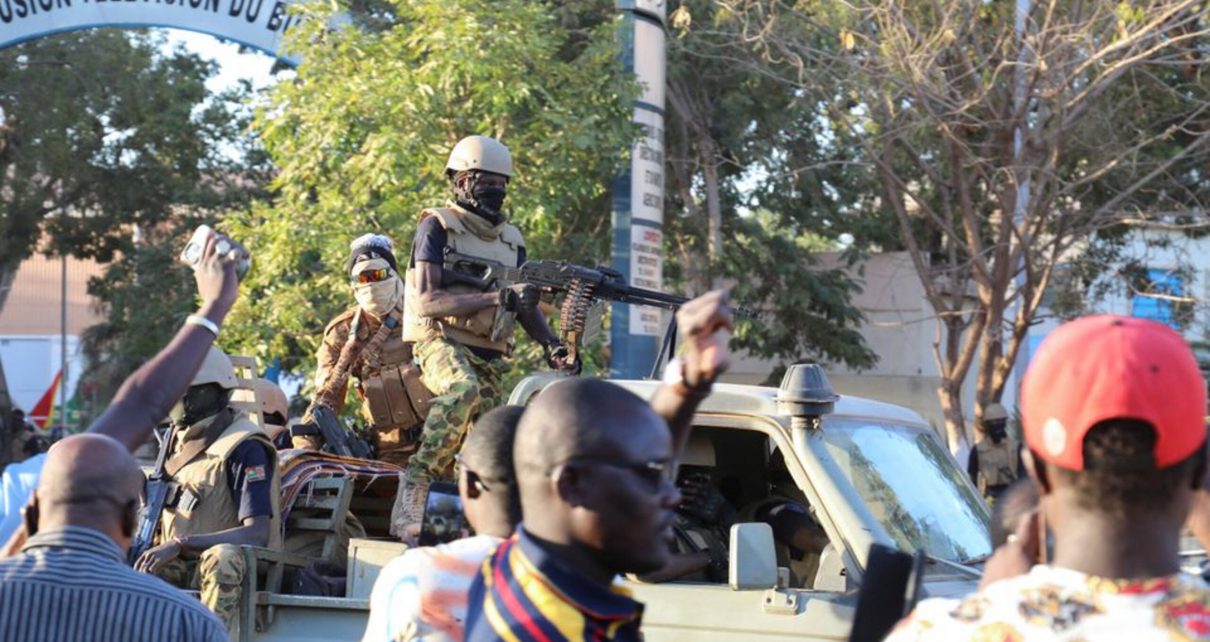More than 1,000 people gathered in Burkina Faso’s capital Ouagadougou on Tuesday in support of a military coup that a day earlier ousted President Roch Kabore, dissolved the government and suspended the constitution.
The fifth coup in West and Central Africa this decade comes amid an increasingly bloody Islamist insurgency that has killed thousands and displaced millions across the Sahel region, eroding faith in democratic leaders to combat the problem.
On Monday, soldiers announced they had overthrown Kabore, who came to power in 2015, a move condemned internationally but welcomed by some at home tired of widespread insecurity, alleged corruption and deep poverty.
The putschists, called the Patriotic Movement for Safeguard and Restoration (MPSR), presented Kabore with a hand-written resignation letter on Monday, which he signed, according to numerous sources who shared the letter with Reuters and verified its authenticity.
“In the interests of the nation, following events that took place since yesterday, I have decided to resign from my role as president of Burkina Faso,” said the letter.
An MPSR statement read on television said it was re-opening borders a day after closing them.
Kabore’s whereabouts were unknown on Tuesday. The MPSR has said he was detained at a secure location. Vehicles belonging to the presidential fleet were seen riddled with bullets near Kabore’s residence the day before.
France’s President Emmanuel Macron said the situation had appeared calm in the last few hours and that he had been informed Kabore was “in good health” and not being threatened.
The United States, the United Nations, regional political bloc ECOWAS and the G5 group of Sahel nations all condemned the coup.
ECOWAS said in a statement on Tuesday that Kabore was forced to resign under “threat, intimidation and pressure” from the military, and it will hold an emergency summit to discuss a response in the coming days. L8N2U54VYL8N2U54V7
ECOWAS has already slapped broad sanctions on neighbouring Mali where there have been two military coups since August 2020.
A military-led interim government said this month that it planned to hold on to power until December 2025 – nearly four years after it initially agreed to hold democratic elections – prompting ECOWAS to close borders with Mali and cut it off from financial markets.
Armies have also staged coups in Guinea and Chad in the last year, raising worries about a return to the latter stages of the last century when frequent putsches across West and Central Africa saw the region dubbed “The Coup Belt”. (REUTERS)


